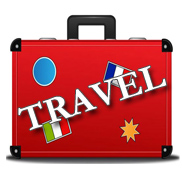Canada’s snowbirds are starting to head south for the winter, but many of them don’t have the proper insurance coverage for their time away. According to a recent survey by TD Insurance, only half of Canadians aged 50 and over checked their travel insurance policy before leaving for vacation, and only 16% called their insurance provider to determine if they needed to update their policy.
“Snowbirds have a unique set of insurance needs, different from most Canadian travellers,” says Dave Minor a vice president at TD Insurance. “Not only do they need to understand exactly what their travel insurance policy covers, but they may have to review auto, recreational vehicle, and home insurance policies – for both their property down south and back home – before they travel.”
Canadian snowbirds heading south for the winter need to consider:
Travel insurance
“Snowbirds should review the details of their travel medical insurance policy including whether or not there is a time limit for out of country coverage and what they need to know about pre-existing conditions and limitations,” Minor said. “If a snowbird has visited a hospital or switched medications in the past 12 months, this information needs to be disclosed to their insurance provider, as a failure to do so may impact insurance coverage should they need to make a claim.”
If you are unsure about your policy coverage, check with your insurance broker.
Auto insurance
According to the survey, 46% of Canadian snowbirds believe that if they are driving outside of Canada, their auto insurance policy will cover them, but this isn’t always the case.
“Snowbirds need to call their insurance provider if they are taking their vehicle outside of Canada or the United States, or if they plan to rent a vehicle for more than 30 days,” says Minor. “They should also consider increasing their liability limit given that claims in the United States can be expensive, and discuss that with either their provider or insurance agent.”
For snowbirds travelling down south by motorhome or RV, keep in mind that although insurance protection on recreational vehicles is similar to regular auto insurance, because this vehicle also serves as a home, it requires a unique policy.
“If RV owners are increasing the amount of time they are living in their vehicle – for example living in the unit full time versus an occasional weekend getaway – then their policy may need to be revised,” says Minor. “Check with your insurance provider to find out what your needs are, so you’re not left uncovered.”
Insurance providers: become an Ontario Auto Expert with ILScorp.
Home insurance
Only 12% of Canadian snowbirds say they checked their home insurance policy to ensure their primary residence would be covered while on vacation. Making sure you take the necessary steps to protect your home before you travel will make the process easier should you need to make a claim.
“Often insurance policies have specific ‘away’ requirements, which, if not fulfilled, could void coverage if your home is left unoccupied and unattended for an extended period of time,” says Minor. “Contact your insurance provider to make sure you know what steps to take to keep your current policy valid.”
ILScorp offers homeowners policy courses for insurance agents, to ensure you can provide proper coverage for your clients.
TD Insurance commissioned Environics Research Group to conduct an online custom survey of 2,748 Canadians aged 18 and older, including 1,362 Canadians 50 years of age or older (referred to as snowbirds). Responses were collected from February 7 to 18, 2013. More information and tips about your insurance needs are available at www.tdinsurance.com.
Do you review insurance needs with your snowbird clients before they head south?




